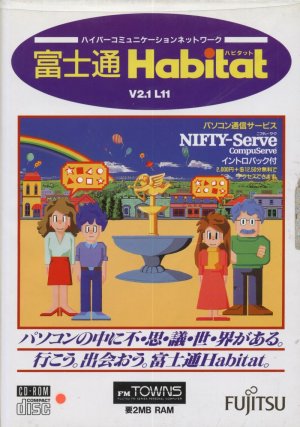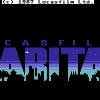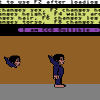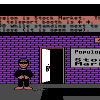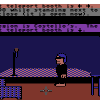Habitat is a MMO (massive multiplayer online game), originally designed by Chip Morningstar and Noah Falstein at Lucasfilm Games. Although it is not the first online game, it lay the groundwork for modern MMORPGs by allowing more than 20,000 gamers to play in the same open-ended, virtual world, even though it doesn’t contain typical RPG characteristics such as levelling, skills, abilities and classes. Still, Habitat forms the link between text-based MUDs that rarely topped the 100-player mark and modern MMORPGs. Because of the limited trial phase it was released in, it never contained more than 500 players.
The game was originally released as a beta test and could only be played through Quantum Link, an online service of Quantum Computer Services (which later became America OnLine), and was only available in the evenings and weekends, as network traffic was cheaper at those moments. You control an avatar, seen from a third-person perspective in a 2D world. Avatars can gesture, move around, communicate with other characters, and manipulate objects. The world consists of thousands of regions - different environments that can be accessed through doors, teleportation and other entrances. You can also communicate through the in-game mail system or by using ESP (telepathic abilities), and personalise your avatar with the skin tone, features, or clothing.
Players can visit stores, houses, pubs, forests… and use objects such as tools, weapons and magical items. The stress is on the social dimension. You can get married, play games, write a book, go adventuring, visit theatres or lectures, or start a company, a guild, or a religion. Each player has a bank account and there is an in-game economy based on tokens. The game designers even appeared in the game as powerful opponents and global quests were organised. These are presented as one-time challenges, and not as instances multiple players can encounter at different moments. Players can also turn into ghosts to discover new areas without risks. Although there are no real classes, people can behave as thieves, law enforcers or clergymen. There are no regulations and players are only limited to what the game code allows. Quests are provided by the Oracle, an almighty entity that ‘created’ the Habitat. The libertarian approach with the freedom in gameplay was introduced because people solved quests too quickly and the developers would never be able to keep up with new content.
New features were added gradually. Rather than controlling or limiting the possibilities, the developers observed gamers’ behaviour and introduced novelties according to the needs. It also includes PvP fighting (player vs. player) and safe zones in the cities. Habitat has its own newspaper, The Rant, documenting events and reserved for announcements.
The project was ended in 1988 when Quantum Link observed that the 500 players played the game so much that the game’s traffic ate up 1% of the total capacity of the entire QL service. The company feared it would not be able to sustain the network with a full release open to many more players, and scrapped the project. It resurfaced later in 1988 as Club Caribe, and as Fujitsu Habitat in 1990 when the technology was licensed to Fujitsu. Eventually, Fujitsu bought it entirely and launched it as WorldsAway in 1995. The game currently lives on as Vzones and the fantasy variant Second Kingdom. Right now, the unrelated Second Life incorporates most of Habitat’s mechanics.
